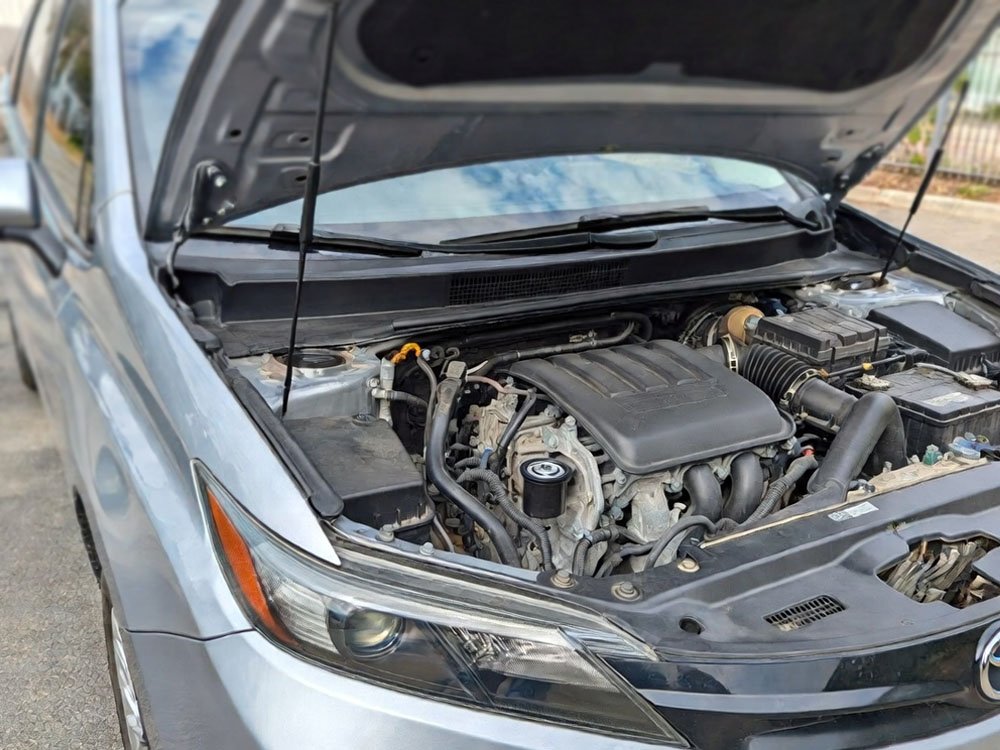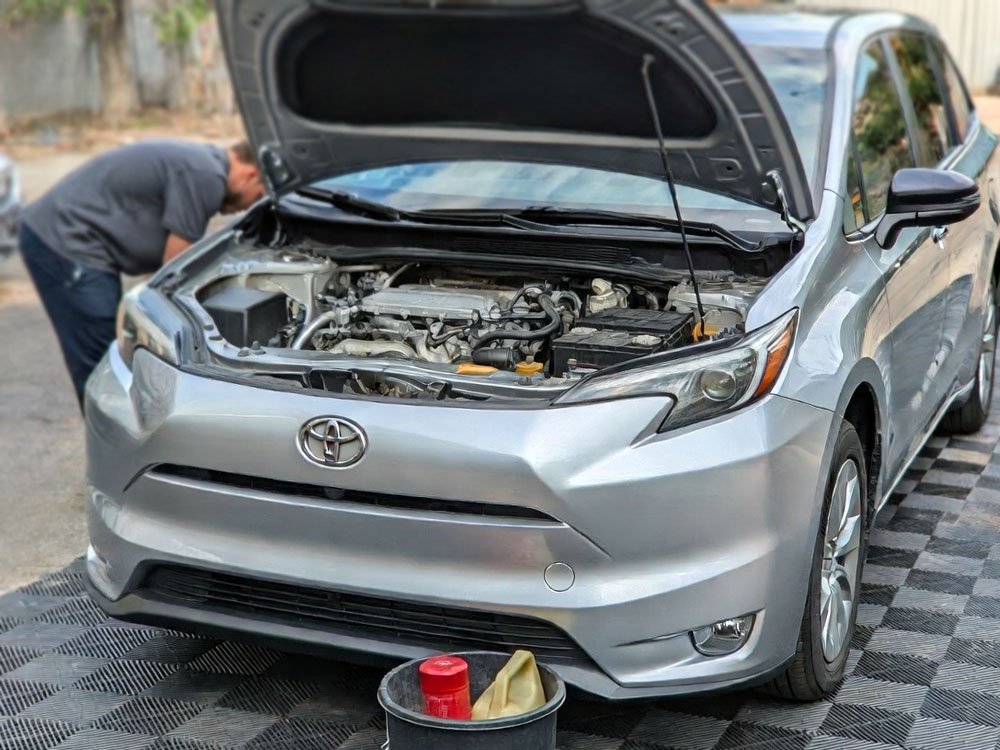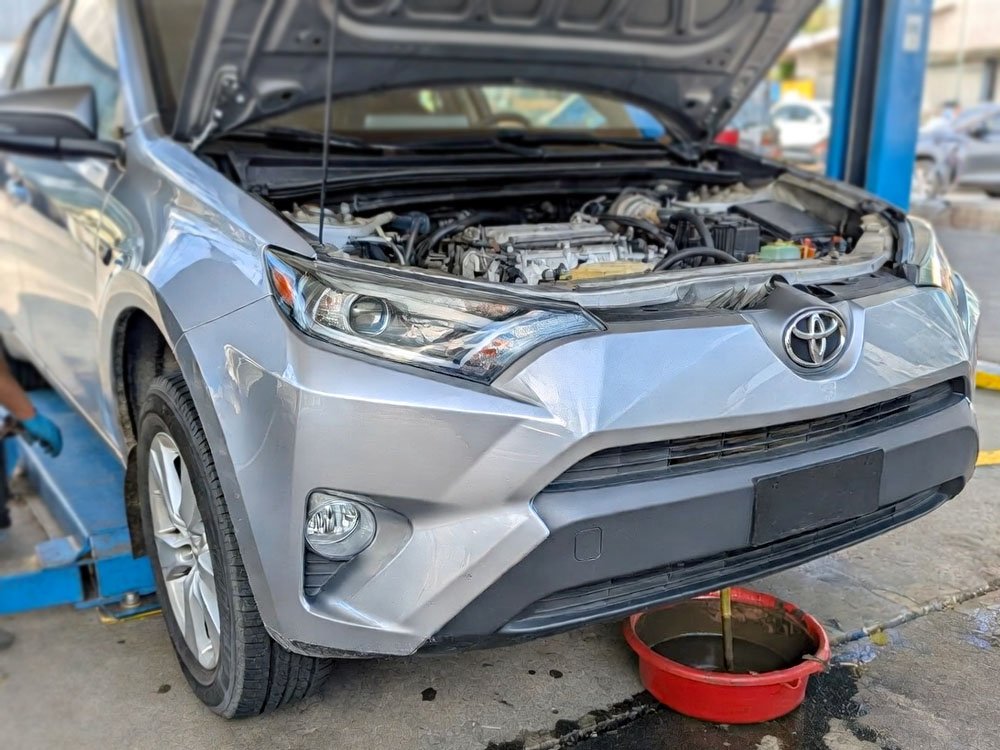As an Amazon Associate, I earn from qualifying purchases at no extra cost to you.
How Long Does It Take to Replace an Alternator? Expert Guide
Is your car acting up, and you think it might be the alternator? You’re not alone! Replacing an alternator is a pretty common repair, but many wonder how long it really takes. The time it takes can vary depending on a few things like your car's make, the mechanic's experience, and more. In this article, we'll break down everything you need to know about replacing your alternator, so you can get back on the road quickly and confidently.
Factors That Affect Alternator Replacement Time
When you're getting your alternator replaced, you may notice that the time it takes can differ quite a bit from one situation to the next. This happens for a variety of reasons, and it's essential to understand the factors that influence how long the job will take. Let's break down the main aspects that can impact the time it takes to replace your alternator.
1. Vehicle Make and Model
One of the biggest factors that affect how long it takes to replace an alternator is the specific make and model of your vehicle. Some cars are designed to make repairs easier, with more accessible components, while others may require more disassembly or specialized tools to get the job done.
For example, replacing the alternator on a compact car may be faster than replacing one on a larger vehicle, like an SUV or a truck. The alternator in some cars is located deep within the engine compartment, requiring more effort to reach and remove it.
2. Mechanic’s Experience
The skill level and experience of the mechanic can play a significant role in how quickly the alternator replacement is completed. A seasoned mechanic who has done this repair many times will generally be able to get the job done faster than someone who is still learning. They will have the right tools, know where everything is, and be familiar with potential complications that could arise during the process.
3. Tools and Equipment Available
The type of tools and equipment used can also impact the speed of the replacement. If the repair shop has all the necessary equipment and high-quality tools, the replacement will generally be quicker. On the other hand, if they are using less efficient tools, it might take longer to complete the task.
4. Condition of the Alternator
Sometimes, the alternator isn't the only component that needs attention. If the alternator is stuck or has additional damage around it, the mechanic may need to deal with extra complications, which could slow down the process. For instance, if there's a rusted bolt or damaged wiring, it will require more time to handle.
5. Type of Replacement
If the alternator is being replaced with a brand-new one, it may take less time compared to replacing it with a refurbished or reconditioned alternator. Refurbished alternators can sometimes require additional checks or modifications to ensure proper fit and function, which may add time to the repair.
6. Additional Repairs Needed
It's important to keep in mind that while the alternator is being replaced, other parts of the electrical system may need attention. For example, the serpentine belt that drives the alternator may need replacing, or there may be issues with the battery or wiring that need to be addressed. These additional repairs could extend the overall time required for the alternator replacement.
Step-by-Step Process of Replacing an Alternator
Replacing an alternator may sound like a complicated task, but it's something that skilled mechanics do regularly. Understanding the process can help you get a sense of how long it will take. Here's a general overview of the steps involved in replacing an alternator.
1. Disconnect the Battery
Before starting any work, the first and most important step is to disconnect the battery. The alternator is part of the car's electrical system, and working on it without disconnecting the battery can lead to dangerous shocks or cause damage to the vehicle's electronics. Disconnecting the negative terminal of the battery is an essential first step.
2. Remove Any Obstructions
Once the battery is disconnected, the mechanic will need to remove any parts that are blocking access to the alternator. This could include things like the air intake, belts, or hoses. The goal here is to make enough space so that the alternator can be easily removed and replaced.
3. Loosen and Remove the Alternator
Next, the mechanic will locate and loosen the bolts holding the alternator in place. In some cases, the alternator will be secured by multiple bolts, which can require some time to remove. Once all the bolts are undone, the alternator can be pulled out. This is usually where the time frame starts to vary—if the alternator is easy to access, this step may only take a few minutes, but if it’s located deep inside the engine compartment, it could take longer.
4. Install the New Alternator
After the old alternator is removed, it's time to install the new one. The mechanic will carefully place the new alternator into the same spot as the old one and secure it with the necessary bolts. This process should be fairly quick if the new alternator is an exact match for the old one.
5. Reconnect Everything
Once the alternator is securely in place, the mechanic will reconnect the electrical wiring, belts, and other components that were removed earlier. This is another important step that ensures everything is connected properly for the alternator to work correctly.
6. Test the New Alternator
Finally, the mechanic will reconnect the battery and start the car to test the new alternator. The goal here is to make sure that the alternator is charging the battery properly and that there are no issues with the electrical system. This step also includes checking for any unusual noises or warning lights that might indicate a problem.
Average Time to Replace an Alternator
Now that we've looked at the factors that affect alternator replacement time and the step-by-step process, it's time to discuss how long you can expect the job to take. On average, replacing an alternator typically takes between 2 to 4 hours. However, this can vary depending on the factors we discussed earlier, such as the make and model of the car and the skill of the mechanic.
1. Common Time Range
For most vehicles, the alternator replacement process will take somewhere between 2 and 3 hours. This includes the time for disassembly, removing the old alternator, installing the new one, and performing necessary tests. This is the typical time frame you can expect if everything goes smoothly and there are no complications.
2. Complex Vehicles
For more complex vehicles, such as luxury cars or trucks with complicated engine layouts, the process can take longer. In these cases, it may take up to 4 hours to replace the alternator. The extra time is needed to navigate through tight spaces or to deal with complicated components that need to be removed before the alternator can be accessed.
3. Quick Replacements
In some situations, the alternator replacement can be completed in less time. For vehicles with a straightforward design and easily accessible alternator, it's possible to replace the alternator in under 2 hours. In this case, the job would be quick, especially if there are no additional repairs needed.
4. When There Are Additional Issues
If the mechanic finds additional problems while replacing the alternator—such as a damaged serpentine belt or corroded wiring—it could extend the repair time. In these cases, it's important to address the underlying issues to ensure the alternator and overall electrical system work correctly.
How to Speed Up the Alternator Replacement Process
If you’re looking to get the alternator replaced as quickly as possible, there are a few things you can do to speed up the process. While you can't control everything, there are certain steps that can make the repair go a little faster.
1. Choose the Right Mechanic
One of the best ways to ensure a fast alternator replacement is to choose a mechanic with plenty of experience. An experienced mechanic will know exactly what needs to be done, how to access the alternator, and how to avoid potential pitfalls. This familiarity will allow them to complete the job more quickly.
2. Ensure the Correct Parts Are Ready
Make sure that the correct alternator is available before the mechanic starts the work. If there's any delay in getting the parts, it will extend the time it takes to finish the replacement. Having the right alternator on hand ensures that the job can proceed smoothly without waiting for a part to arrive.
3. Limit Additional Repairs
If the mechanic finds other issues during the replacement, such as a damaged belt or corroded wiring, it could slow down the repair. Try to limit these additional repairs as much as possible by maintaining your car's electrical system regularly.
4. Consider Doing It Yourself (If You’re Experienced)
If you’re confident in your skills and have experience with car repairs, replacing the alternator yourself can save time. However, keep in mind that this is only recommended if you're comfortable with working on cars. For most people, taking the car to a professional mechanic is the best option.
I hope this guide has helped you understand how long it typically takes to replace an alternator and the factors that can influence the timeline. Whether you’re planning to take your car to a mechanic or tackle the repair yourself, knowing what to expect will help you manage your time and make the process easier.
Frequently Asked Questions (FAQs)
Is it hard to replace an alternator yourself?
Replacing an alternator can be challenging if you don't have prior experience working on cars. It involves accessing the engine compartment, disconnecting the battery, and dealing with several parts. If you're not comfortable with this, it's better to leave it to a professional mechanic.
Can a bad alternator cause other problems?
Yes, a bad alternator can cause a variety of issues with your car's electrical system. If the alternator is not charging the battery properly, it can lead to electrical failures, dead batteries, or even engine stalls. It's crucial to replace a faulty alternator as soon as possible to avoid further damage.
Do I need to replace the battery when I replace the alternator?
In most cases, you don't need to replace the battery when you replace the alternator. However, if the battery is old or already showing signs of wear, it might be a good idea to replace it at the same time. A new alternator will work best with a healthy, fully charged battery.
Is it safe to drive with a bad alternator?
It's not recommended to drive with a bad alternator. A faulty alternator can cause the battery to lose its charge, leaving you stranded with a dead car. Additionally, it can cause damage to other electrical components in the vehicle. It's better to get it repaired as soon as possible.
Can a bad alternator cause the check engine light to come on?
Yes, a malfunctioning alternator can trigger the check engine light. If the alternator is not charging the battery properly, it can affect the car's electrical system, which may cause the check engine light to turn on. It’s important to get your car checked when this happens.
Do I need to reset my car’s computer after replacing the alternator?
In most cases, resetting the car’s computer after replacing the alternator isn't necessary. However, some vehicles may require a reset or a system check to ensure the alternator is properly recognized. A mechanic can take care of this during the replacement process.
Is it possible to replace an alternator without removing the radiator?
In some vehicles, it's possible to replace the alternator without removing the radiator. However, for cars with more complicated engine layouts, removing the radiator may be necessary to access the alternator. A mechanic will know the best approach based on your car's make and model.
Can I drive my car while waiting for the alternator replacement?
It's not ideal to drive with a faulty alternator, as it can lead to the battery dying or other electrical issues. If your alternator is failing, it's best to get the car repaired as soon as possible to avoid being stranded.











